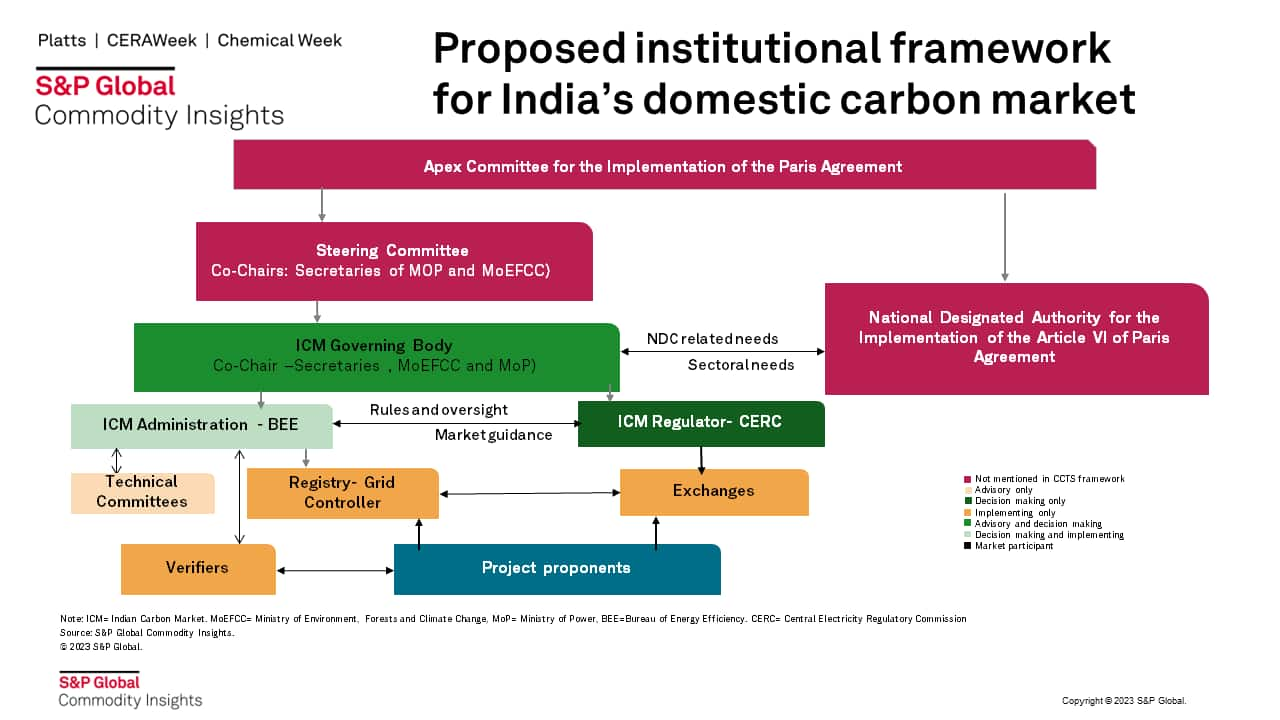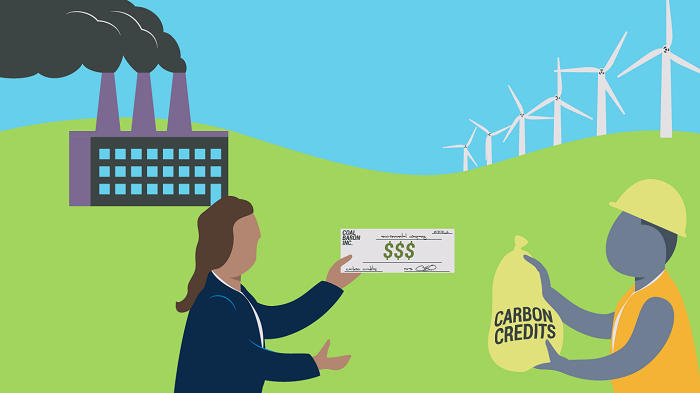The Indian government has taken a significant step towards establishing India’s first carbon market by notifying a draft framework for the Carbon Credit Trading Scheme, 2023. The framework outlines the regulatory structure and key stakeholders responsible for the formation and functioning of the carbon market. This move aligns with India’s ambitious goal of achieving net-zero emissions by 2070 and aims to facilitate decarbonization in the commercial and industrial sector.
National Steering Committee:

The draft framework establishes a National Steering Committee responsible for overseeing the operations of the carbon market. The committee will be headed by the Secretary of the Ministry of Power and will include key representatives from various ministries, including Environment, Finance, New and Renewable Energy, Steel, Coal, Petroleum, and Niti Aayog. It will play a crucial role in formulating procedures, setting emission targets for obligated entities, and guiding the Bureau of Energy Efficiency (BEE) in institutionalizing the Indian carbon market.
Regulatory Authorities:
-
Central Electricity Regulatory Commission (CERC): The CERC will serve as the regulatory body for all trading activities within the Indian carbon market. It will ensure compliance, monitor trading activities, and enforce regulations to maintain market integrity.
-
Grid-India: Grid-India will act as the registry for the carbon market. It will maintain a record of carbon credits, transactions, and participant information, ensuring transparency and accountability.
Administrator and Accreditation:
The BEE will assume the role of the carbon market administrator. It will develop procedures and eligibility criteria for accrediting carbon verification agencies. The BEE will also collaborate with the National Steering Committee to establish emission targets and trajectories for entities operating within the compliance mechanism.
Technical Committees:
In addition to the National Steering Committee, one or more technical committees will be formed as per the draft framework. These committees will provide specialized expertise and support in specific areas related to the functioning of the carbon market.
Compliance Mechanism:
A compliance mechanism will be formulated, with the Ministry of Power identifying the sectors subject to compliance requirements. The BEE will then establish emission reduction trajectories and targets for these entities. Upon considering recommendations from the Bureau and the National Steering Committee, the Ministry of Power will recommend the notification of greenhouse gas emission intensity targets to the Ministry of Environment, Forest, and Climate Change for formal notification under the Environment Protection Act, 1986.
Benefits of Carbon Trading:
The establishment of a carbon market in India is expected to incentivize entities with low emission reduction costs to exceed their mandated targets. By engaging in carbon trading, entities can supplement their own emission reduction efforts with credits from the carbon market. This flexibility can lead to overall cost reductions in emission reduction initiatives throughout the country.



 Indian Olympic Medal Winners List Till N...
Indian Olympic Medal Winners List Till N...
 Who is the Inventor of the Gramophone?
Who is the Inventor of the Gramophone?
 HS Dhaliwal Appointed New DGP Of Andaman...
HS Dhaliwal Appointed New DGP Of Andaman...
